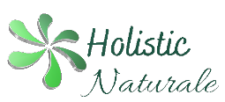What is Echinacea?

Echinacea is a herb which supports immune function. Also known as Indian Snakeroot (due to its ability to treat snake bites), the herb has a potent ability to fight infection, especially viral and bacterial, and to aid the clearance of toxins from the body. Studies have found that it shortens the duration of colds and flu and may reduce the duration of a cold if taken at the first sign of symptoms,
Echinacea (Echinacea purpurea) is a wildflower which is a member of the daisy family. Three types are used in herbal supplements, Echinacea purpurea, Echinacea angustifolia and Echinacea pallida.1 Echinacea purpurea is the type which is most frequently used and it is available as teas, tablets, liquids or ointments.
Echinacea plants contain several antioxidants and phytochemicals, including caffeic acid esters (mainly echinacoside and cynarin), alkylamides, phenolic acids, polysaccharides, and many more. 2, 3, 4
What is Echinacea Used For?
- Relieves the symptoms of coughs, colds and flu
Echinacea stimulates the immune system. Clinical research into has shown that it increases the number of white blood cells and their strength of action. The polysaccharides inhibit the ability of viruses to take over cells, while the alkylamides are antibacterial and antifungal.
Studies have found that echinacea can reduce the risk of developing colds by more than 50% and can help you recover faster from colds and flu 5, 6, 7, 8
How much should I take?
Generally, do not use echinacea for longer than two weeks. If you are treating a chronic immune-system condition, the usual recommendation is eight weeks of treatment followed by one week off.
Many experts believe the best Echinacea product to buy is the fresh-pressed juice (not the same as a fluid extract) of E. purpurea standardized for a minimum of 2.4 percent beta 1,2-fructofuranosides. This form, however, is not always readily available. Other recommended forms include solid (dry powdered) extract standardized for 3.5 percent echinacoside, fluid extract, tincture, and freeze-dried plant.
Studies have found that the following doses are effective in boosting immunity: 8
- Dry powdered extract: 300–500 mg of Echinacea purpurea, three times daily.
- Liquid extract tinctures: 2.5 ml, three times daily, or up to 10 ml daily.
Always follow the instructions that come with your specific supplement. Also, remember that these recommendations are for short-term use
Who should not take Echinacea?
The following groups should not take Echinacea supplements:
- children under 12 years old due to the risk of serious side-effects, such as bronchospasm, anaphylaxis and facial swelling
- pregnant and breast feeding women
- people with diabetes
- echinacea stimulates the immune system and so people with autoimmune disorders or people taking immunosuppressive drugs should avoid it or consult their doctors first. 9
What are the side-effects of Echinacea?
Side-effects associated with Echinacea include rashes, hives, itchy skin, swelling, shortness of breath, nausea and stomach pain.10
These side effects are more common in people with allergies to other flowers, such as daisies, chrysanthemums, marigolds, ragweed and more. 11, 12
While it appears to be safe for short-term use, its long-term effects are still relatively unknown.
